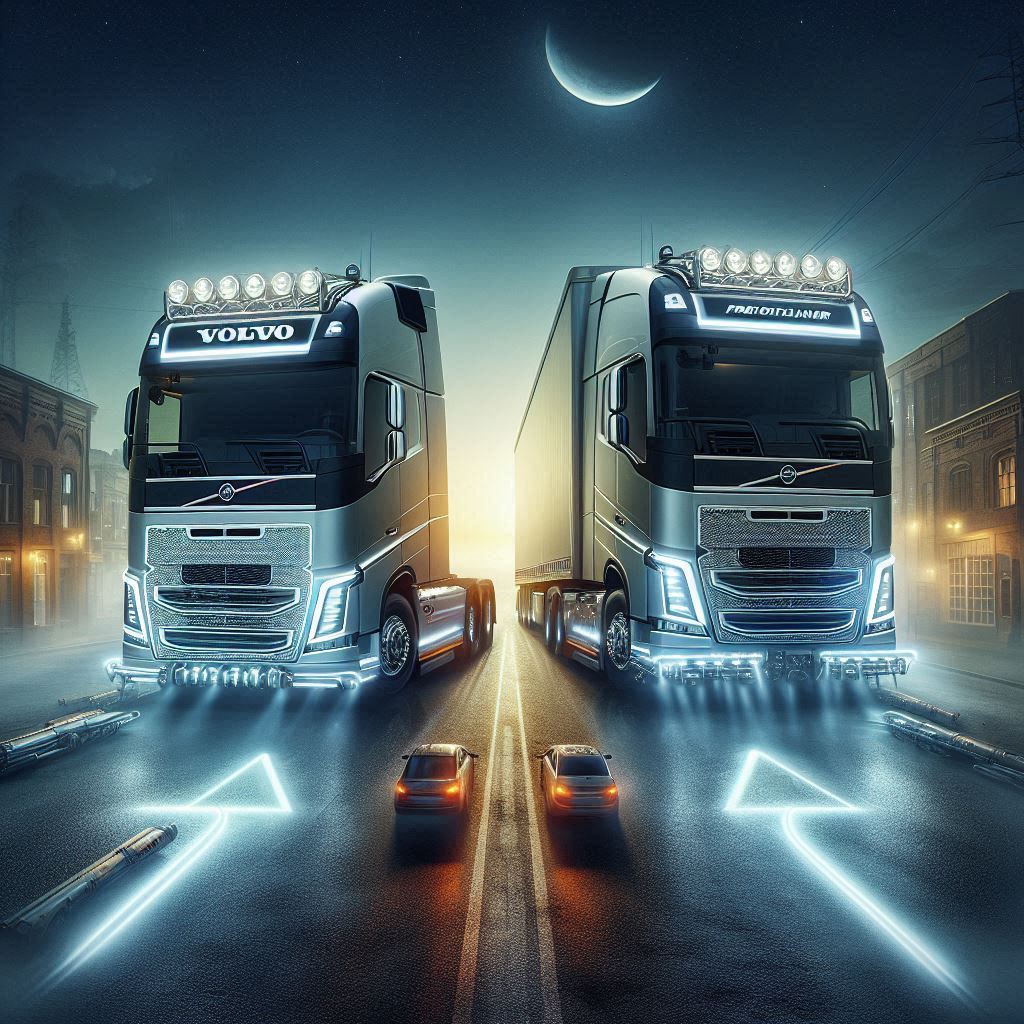In today’s ever-evolving trucking industry, two giants, Volvo and Freightliner, are paving the way for a smarter, more efficient future. Both companies are making strides with their flagship Class 8 trucks—the Volvo VNL and Freightliner Cascadia—each offering unique innovations aimed at improving performance, maintenance, and safety. In a recent episode of the Truck Tech podcast, host Alan Adler sat down to discuss the latest advancements with FreightWaves TV, shedding light on how these trucks are transforming the transportation industry.
Volvo VNL: Revolutionizing Maintenance with Predictive Technology
One of the major highlights from Volvo is their renewed focus on predictive maintenance, powered by cutting-edge technology. In an era where trucks are increasingly becoming “computers on wheels,” Volvo is encouraging fleets to rethink traditional maintenance practices. Rather than relying on routine check-ups, Volvo is pushing for a more sophisticated, data-driven approach.
Alan Adler explained that Volvo’s new “Blue Service Contract” offers fleet managers peace of mind by incorporating artificial intelligence and predictive technology into their maintenance routines. The goal? To anticipate potential issues before they occur, ensuring optimal truck performance while reducing downtime.
With 400 service locations across the U.S., Volvo is positioning itself as a partner that offers a seamless, end-to-end solution. From scheduled brake replacements to oil changes, and now advanced predictive maintenance, Volvo’s Blue Service Contract aims to cover every aspect of truck care.
“This is something the airline industry has been doing for years, and it’s now making its way into trucking,” said Adler. The contract allows fleet managers to bundle maintenance into the truck’s purchase price, giving them a single point of contact for service needs.
Freightliner Cascadia: Incremental Improvements Lead the Market
Unlike the Volvo VNL, the Freightliner Cascadia has not undergone a complete overhaul recently. However, Freightliner has focused on improving key features to enhance fuel efficiency and driver safety. The latest upgrades introduced in 2020 were more subtle but significant.
One of the standout improvements is the integration of camera-based mirrors. This technology replaces traditional side mirrors with a camera system that not only enhances visibility but can also improve fuel efficiency by 2-3%. Freightliner has pre-wired its trucks for years in anticipation of this upgrade, but now it’s becoming a factory-installed option.
Additionally, the Cascadia now features remote locking and unlocking systems—something drivers might be used to in their personal cars but is still relatively new in the trucking world.
Though these improvements may seem small compared to Volvo’s predicted 10% fuel efficiency gain with the VNL, Freightliner remains a dominant player in the market. The Cascadia holds around 40% market share in the Class 8 truck segment, thanks to its reliability and gradual enhancements over the years.
A High-Tech Future for Trucks
Both Volvo and Freightliner are pushing the trucking industry toward a future defined by software rather than mechanical power alone. As trucks become more connected and reliant on sophisticated systems, fleet managers will need to adapt to new ways of maintaining their vehicles.
Magus Gusterson, Volvo’s Vice President of Connected Vehicles, joined the Truck Tech podcast to delve into these trends, emphasizing how software-defined trucks are the future. The shift to predictive maintenance and intelligent service contracts marks the beginning of this transformation.
For those looking to stay ahead of the curve, the Truck Tech podcast offers insights into the latest trends. The episode featuring Volvo and Freightliner’s innovations aired at 3:00 PM Eastern on FreightWaves’ YouTube channel, providing a deeper dive into the evolving world of Class 8 trucks.
Volvo and Freightliner continue to lead the trucking industry with their innovative approaches, each offering unique solutions to the challenges of modern transportation. As these giants compete, the real winners will be the fleet managers and drivers who benefit from safer, more efficient trucks.

